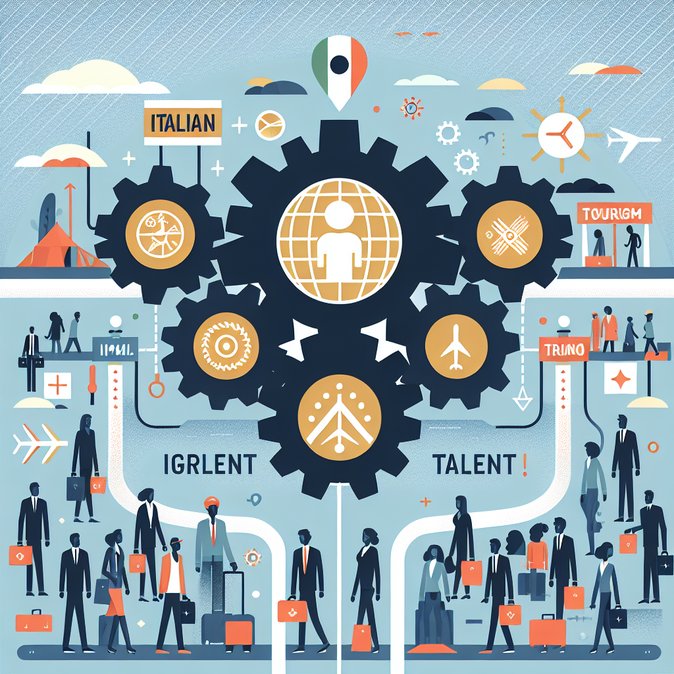
On 24 October 2025 the European Commission’s Directorate-General for Migration and Home Affairs highlighted a package of Italian initiatives that together amount to the most comprehensive integration push the country has attempted since the 2016-2017 refugee crisis. The headline measure is a tripartite agreement signed in June between the Ministries of Labour, Interior and Tourism and the main employers’ associations in the tourism sector. Under the accord, companies that operate hotels, resorts and touristic services commit to fund language courses, on-the-job mentoring and fast-track certification of prior skills for refugees and other vulnerable third-country nationals. In return they obtain privileged access to seasonal-work quotas and a dedicated desk at Job-Centres in the eight regions that generate 70 % of Italy’s tourism GDP.
The Commission note also confirms that the Interior Ministry has launched “LGNetForma”, a two-year training cycle for 2,300 municipalities with more than 5,000 inhabitants. Web-based seminars coached by ANCI and the Cittalia foundation will help municipal case-workers deal with housing, family reunification and school enrolment backlogs—persistent pain points for corporate mobility managers relocating talent to secondary Italian cities.
Civil-society data feature prominently in the package. UNHCR’s 2024 impact report on its “Welcome. Working for Refugee Integration” programme shows that over 16,200 refugees obtained a formal employment contract last year—up 38 % on 2023. The majority of placements were generated in manufacturing and agri-food clusters that struggle with chronic labour shortages. For globally mobile employers the figures are important: they signal an emerging pool of work-ready, Italian-based talent that can be hired without quota restrictions.
Finally, Turin has been selected as the Italian test-bed for “INNOVATE”, a cross-border project that promotes self-employment for migrants through coaching and micro-finance. Pilot lessons learned in Turin will be compared with those from Munich to shape an EU tool-kit on migrant entrepreneurship. The scheme could prove attractive for multinationals that spin-off start-ups or contract freelancers rather than hire staff directly.
Taken together, the measures show Rome moving away from emergency reception towards an investment-driven model that matches migrant skills with real labour-market demand. Mobility and HR professionals should monitor the tourism agreement in particular, as it is likely to become a template for similar pacts in construction and elder-care—two sectors that also depend heavily on foreign workers.
The Commission note also confirms that the Interior Ministry has launched “LGNetForma”, a two-year training cycle for 2,300 municipalities with more than 5,000 inhabitants. Web-based seminars coached by ANCI and the Cittalia foundation will help municipal case-workers deal with housing, family reunification and school enrolment backlogs—persistent pain points for corporate mobility managers relocating talent to secondary Italian cities.
Civil-society data feature prominently in the package. UNHCR’s 2024 impact report on its “Welcome. Working for Refugee Integration” programme shows that over 16,200 refugees obtained a formal employment contract last year—up 38 % on 2023. The majority of placements were generated in manufacturing and agri-food clusters that struggle with chronic labour shortages. For globally mobile employers the figures are important: they signal an emerging pool of work-ready, Italian-based talent that can be hired without quota restrictions.
Finally, Turin has been selected as the Italian test-bed for “INNOVATE”, a cross-border project that promotes self-employment for migrants through coaching and micro-finance. Pilot lessons learned in Turin will be compared with those from Munich to shape an EU tool-kit on migrant entrepreneurship. The scheme could prove attractive for multinationals that spin-off start-ups or contract freelancers rather than hire staff directly.
Taken together, the measures show Rome moving away from emergency reception towards an investment-driven model that matches migrant skills with real labour-market demand. Mobility and HR professionals should monitor the tourism agreement in particular, as it is likely to become a template for similar pacts in construction and elder-care—two sectors that also depend heavily on foreign workers.







